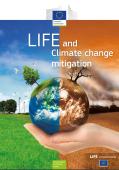Committee on Environmental Policy (CEP) invited the United Nations Economic Commission for Europe (ECE) and UNEP secretariats, in close consultation with relevant stakeholders, including ministries, business and civil society, to prepare an updated report on progress and future prospects in greening the economy in the pan-European region and to include in the report additional chapters on the identification of priorities for greening the economy in the region and possible modalities and options to achieve that (ECE/CEP/2013/2, para. 116 (g) (iii)). The present report attempts to respond to the CEP request and aims at facilitating discussion by CEP. CEP will be invited to consider the issue of greening the economy in the region, including further steps and actions necessary to advance it.
This report is the final delivery of the Energy Efficiency Financial Institution Group (EEFIG) summarizing its work and thinking over the 16 months between October 2013 and February 2015. During this time EEFIG has met nearly every month and addressed energy efficiency investments, their drivers and trends, for buildings, industry and SMEs in the European Union (EU). The reports contains recommendations on a range of actions that could help overcome the current challenges to obtaining long-term financing for energy efficiency. It focuses on the following questions to increase the flow of energy efficiency investments from a financial institution’s perspective:
1. What are the most imminent challenges that must be overcome?
2.Who would be the right party to address them?
3. What should the European Commission/EU do?

In the first dispute on renewable energy to come to World Trade Organization (WTO) dispute settlement, the domestic content requirement of Ontario’s feed-in tariff was challenged as a discriminatory investment-related measure and as a prohibited import substitution subsidy. The panel and Appellate Body agreed that Canada was violating the GATT and the TRIMS Agreement. But the SCM Article 3 claim by Japan and the European Union remains unadjudicated, because neither tribunal made a finding that the price guaranteed for electricity from renewable sources constitutes a ‘benefit’ pursuant to the SCM Agreement. Although the Appellate Body provides useful guidance to future panels on how the existence of a benefit could be calculated, the most noteworthy aspect of the new jurisprudence is the Appellate Body’s reasoning that delineating the proper market for ‘benefit’ analysis entails respect for the policy choices made by a government. Thus, in this dispute, the proper market is electricity produced only from wind and solar energy.
The analysis in this report focuses on selected production-consumption systems, which link environmental, social and economic systems across the world - generating earnings, supporting ways of living, and meeting consumer demands - and also account for much of humanity's burden on the environment. production and consumption are addressed together because they are highly interdependent. Only by adopting an integrated perspective is it possible to get a full understanding of these systems: the incentives that structure them, the functions they perform, the ways system elements interact, the impacts they generate, and the opportunities to reconfigure them.
